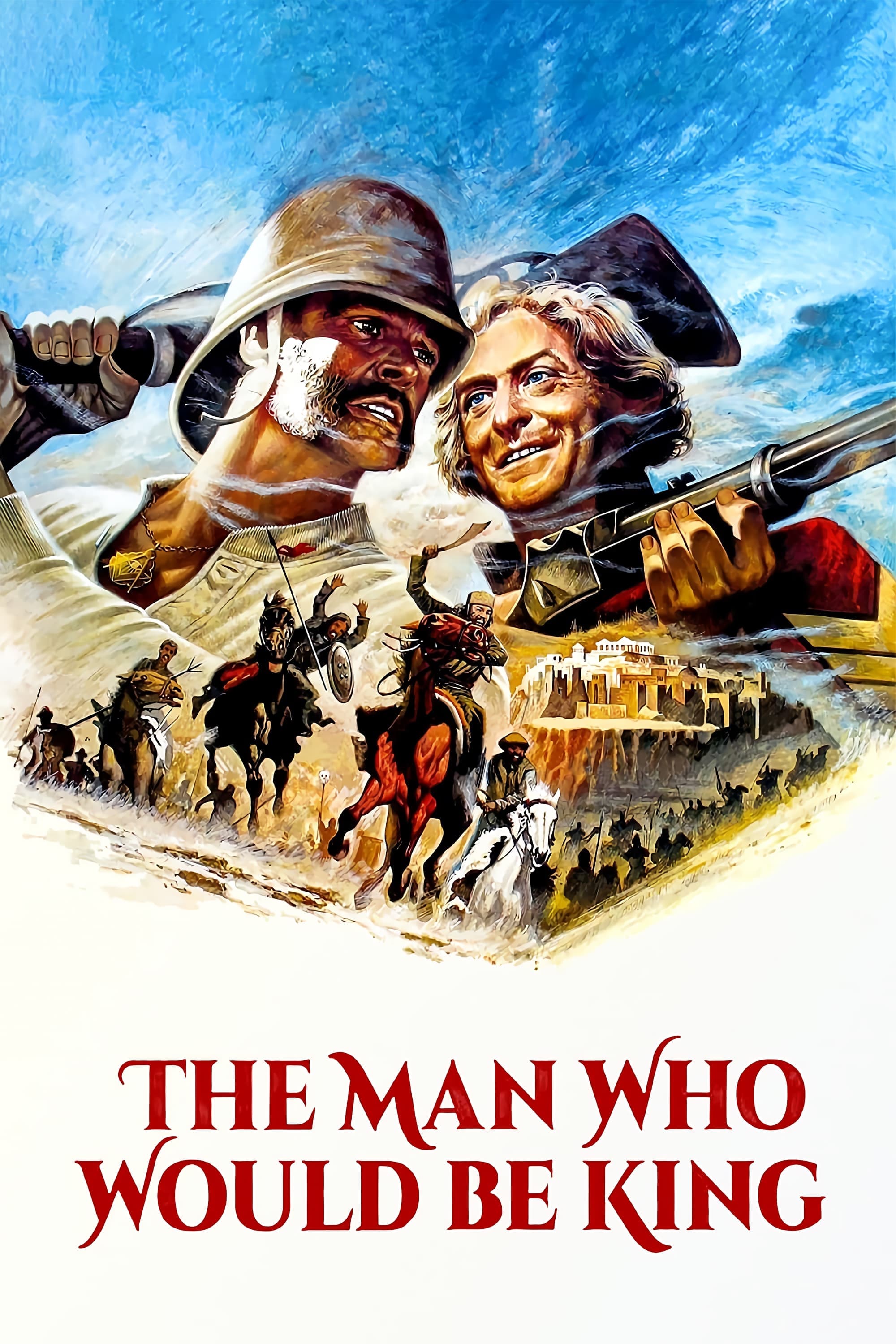
The Man Who Would Be King
1975
Rate this movie
Average: 0.00 / 5
(0 votes)
Director
Two soldiers of His Majesty in 1888, after troubled legal affairs, abandon their arms and arrive in Kafiristan, a country where no Westerner had ever set foot since the time of Alexander the Great. This premise, rooted in late 19th-century adventure narrative, immediately introduces us to a world on the border between myth and reality, where the fervor of the British Empire clashes with the primordial unknown. The ignominy of the "troubled legal affairs" – in reality a poetic license for the audacity and unscrupulousness that characterized many agents of the Empire in distant lands – pushes them not towards redemption, but towards a further, wicked undertaking. Kafiristan, a remote and almost legendary land at the time, described by Kipling as an isolated and wild enclave, guardian of ancestral secrets and untold riches, becomes the stage for an ambition as audacious as it is fatal. One of the two, Daniel Dravot, will become a deity despite himself, a bizarre inversion of fate that the two adventurers, with their inextinguishable hunger for power and prestige, decide to exploit to their advantage. The unexpected honor, a mantle of sanctity casually thrown upon a mercenary, transforms into the pretext for them to take control of the country's destiny, bending it to their will and, above all, laying hands on its immense riches. Here lies the heart of the drama: the irresistible lure of gold and the intoxicating taste of power, viewed through the lens of a civilization that believes itself superior.
Sean Connery and Michael Caine are the protagonists of this story in which human and divine coexist and come to know each other. Their interpretations of Daniel Dravot and Peachy Carnehan are nothing short of masterful, a triumph of synergy and contrast that elevates the film far beyond the confines of a simple adventure tale. Connery, with his imposing stature and regal charisma, embodies unbridled ambition and blind faith in his own destiny, the soldier who believes himself a god. Caine, with his pragmatic cunning and subtle melancholy, is the voice of reason and caution, the seasoned con man who, though seduced by the dream, does not forget its fragility. Two characters who constitute the two complementary parts of a single man, both in the film and in Kipling's story from which it is drawn: indeed, one gets the impression that the two friends represent two sides of the same coin and their parts are often interchangeable, almost to emphasize how one without the other is incomplete, or destined to succumb. Their friendship, steeped in loyalty and disillusionment, is the true emotional engine of the narrative, a fraternal bond tested by the mirage of power and hubris.
It is also a kind of investigation by Kipling into the clash between Western and Eastern cultures, but which in John Huston's hands transforms into an even more poignant and complex reflection. The film explores the dynamics of colonialism not with a simplistic condemnation, but with a lucidity that highlights both its audacity and its intrinsic folly. Dravot and Carnehan are not heroes or villains in the strict sense; they are children of their time, bearers of an imperial mindset that viewed the world as a playground to conquer and "civilize." Their rise to power in Kafiristan is not just a scam, but an unsettling parody of the "white man's burden," an illusion of superiority destined to collide with the ineluctable force of local tradition and faith. The contrast between the rational and calculating logic of the British and the arcane spirituality of the Kafirs creates a thematic conflict that resonates with the complexity of works like Lawrence of Arabia, where individual ambition is measured against the vastness and indifference of exotic landscapes and millennial cultures. It is a tale of grandeur and fall, a warning about the fragility of self-attributed power.
John Huston conceived this film after years of gestation with a pre-production that lasted a full 25 years. Indeed, as early as the 1950s, it was his intention to make the film, and the project seemed destined to become his obsession, his personal Fitzcarraldo, a titanic challenge that mirrored his own adventurous life and indomitable spirit. Humphrey Bogart and Clark Gable were initially chosen as the starring duo, then Burt Lancaster and Kirk Douglas, and even Paul Newman and Robert Redford. The evolution of the casting reflected not only the changes in the film industry, but also a constant search for the perfect combination that could embody the duality of the Kiplingesque characters. The final choice of Connery and Caine proved to be a stroke of genius: two actors at the peak of their careers, with authentic chemistry and interpretive intelligence capable of rendering the nuances of two such complex figures, straddling the line between the buffoonish and the tragic. The long wait allowed Huston to distill the essence of the tale, imbuing it with a wisdom and melancholy that only the experience of a legendary career could have bestowed.
An adventure film, one to watch in a single sitting, where cinematography and narrative rhythm intertwine in an imposing and enchanting work. Oswald Morris's great care for cinematography highlights a lush environment captured in its most spontaneous posture, capturing the rugged and unspoiled magnificence of Morocco (which excellently simulated Kafiristan). Every shot is a canvas painted with natural light, capable of evoking both the grandeur of the mountainous landscapes and the claustrophobia of the golden caves. The desert, the mountains, the isolated villages, all contribute to creating a sense of immensity and isolation, making the protagonists' journey even more epic and at the same time minuscule in the face of wild nature. The editing, skillfully paced, draws the viewer into a whirlwind of events, alternating breathtaking moments of tension with sequences of more placid introspection. Maurice Jarre's score, with its exotic tones and evocative melodies, envelops the narrative, amplifying the sense of wonder and impending tragedy. The Man Who Would Be King is not just an adventure film, but a complete work of art, a masterpiece that transcends the genre, offering a profound meditation on human nature, ambition, friendship, and the transience of every empire, be it that of Alexander, the British, or the ephemeral one of two eager soldiers.
Genres
Country
Gallery
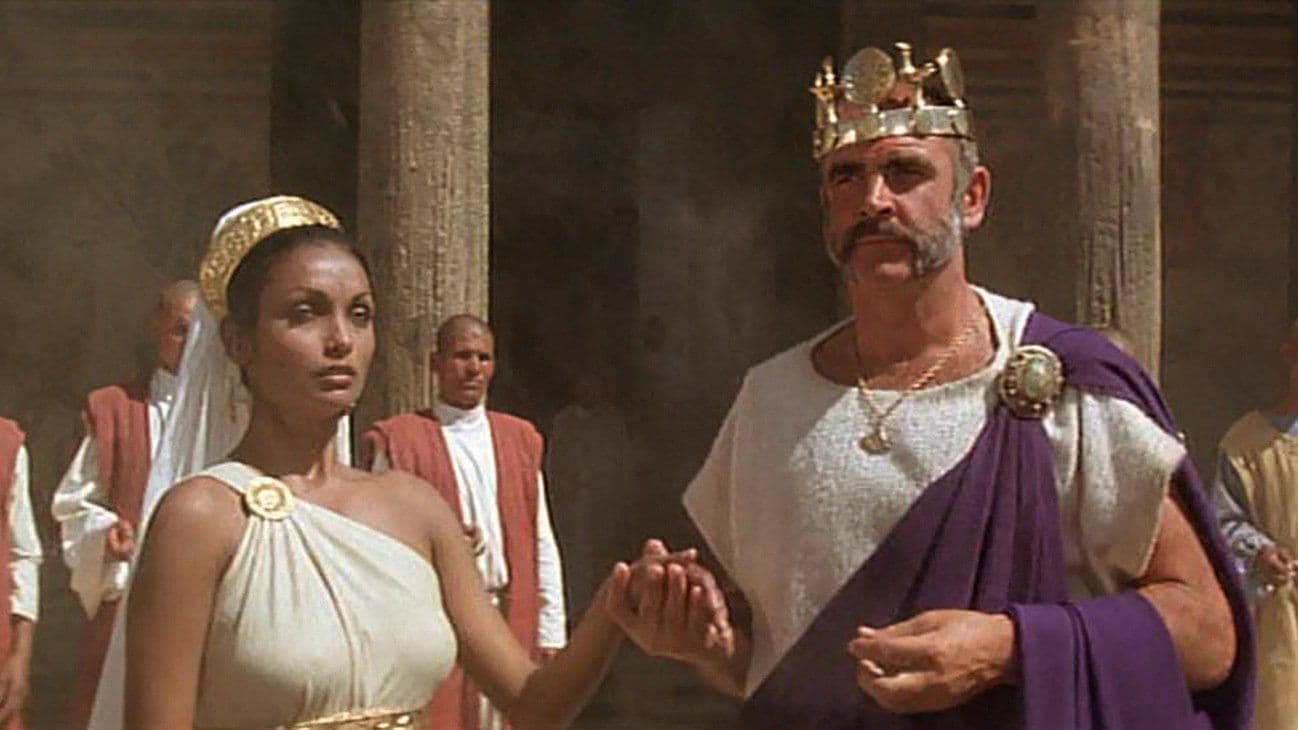
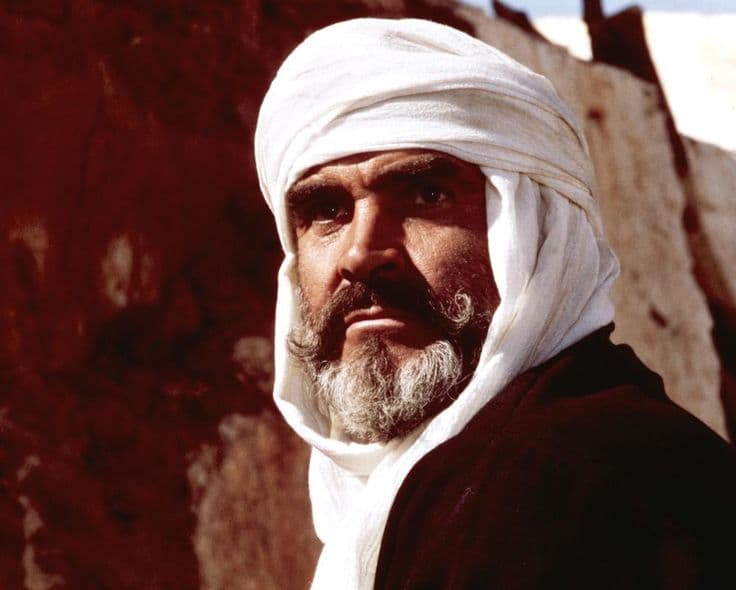
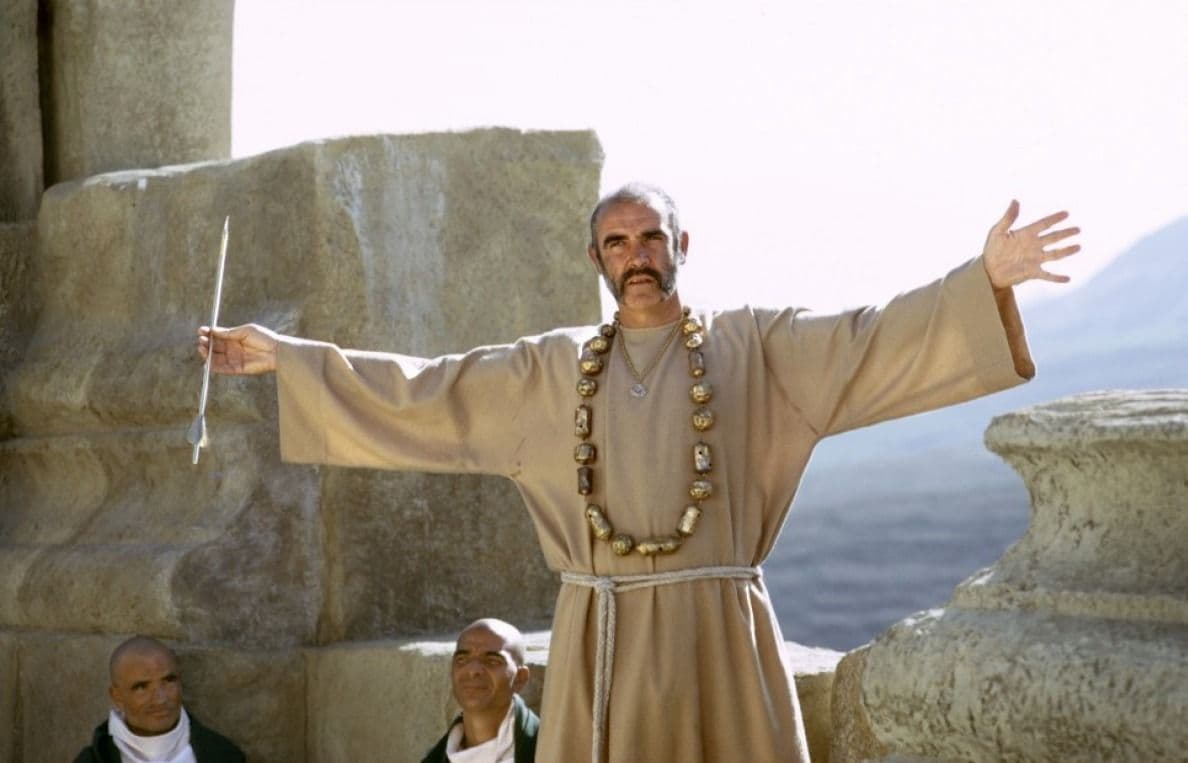
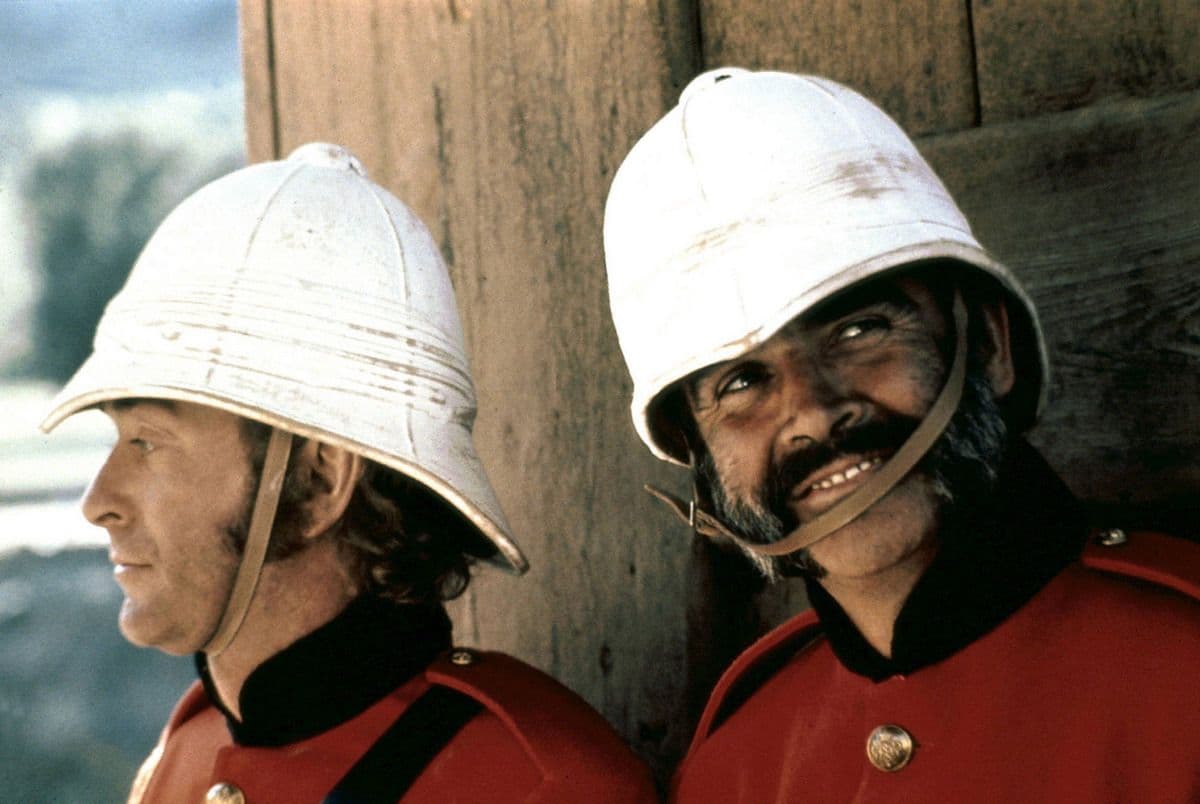
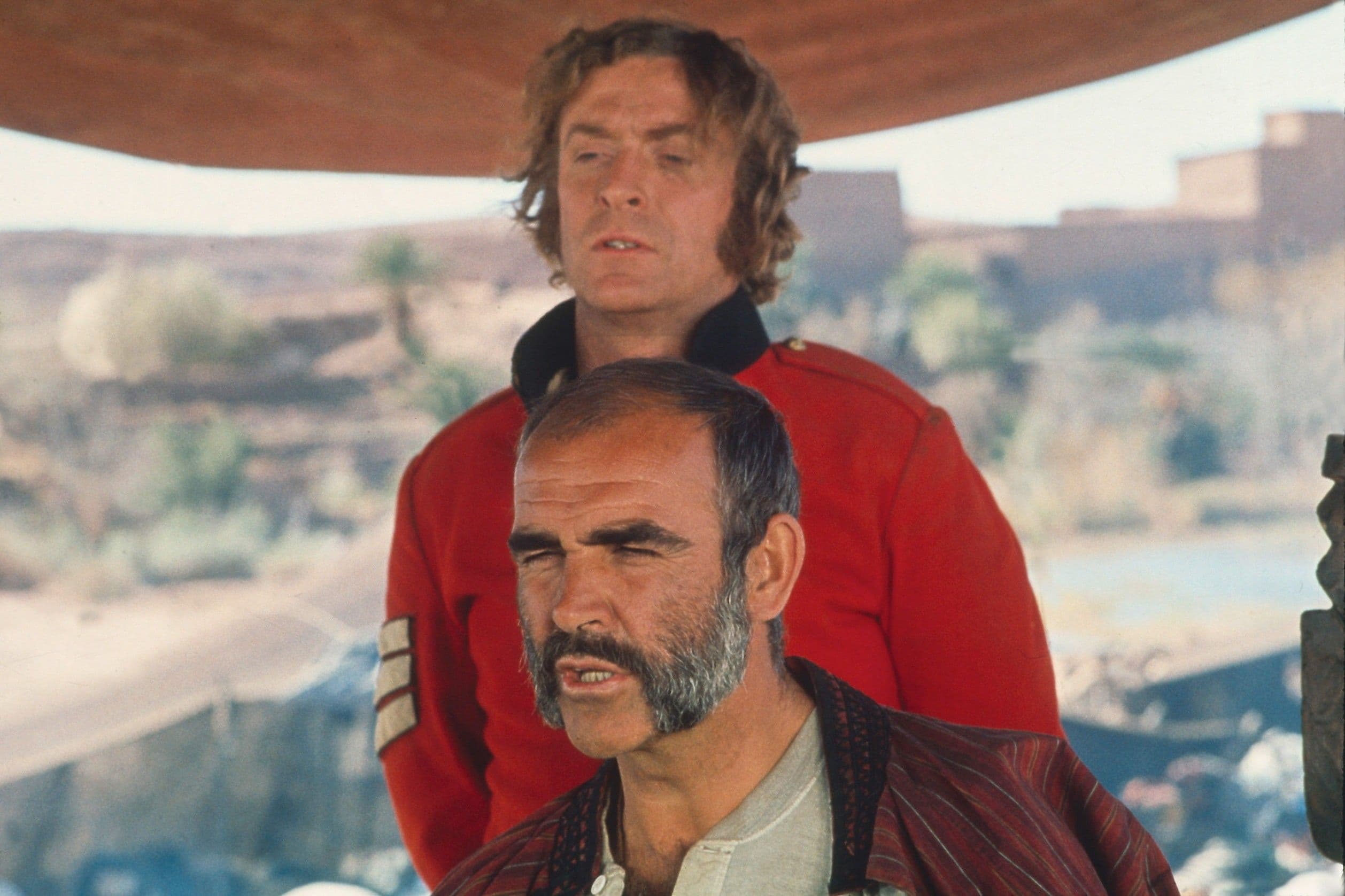
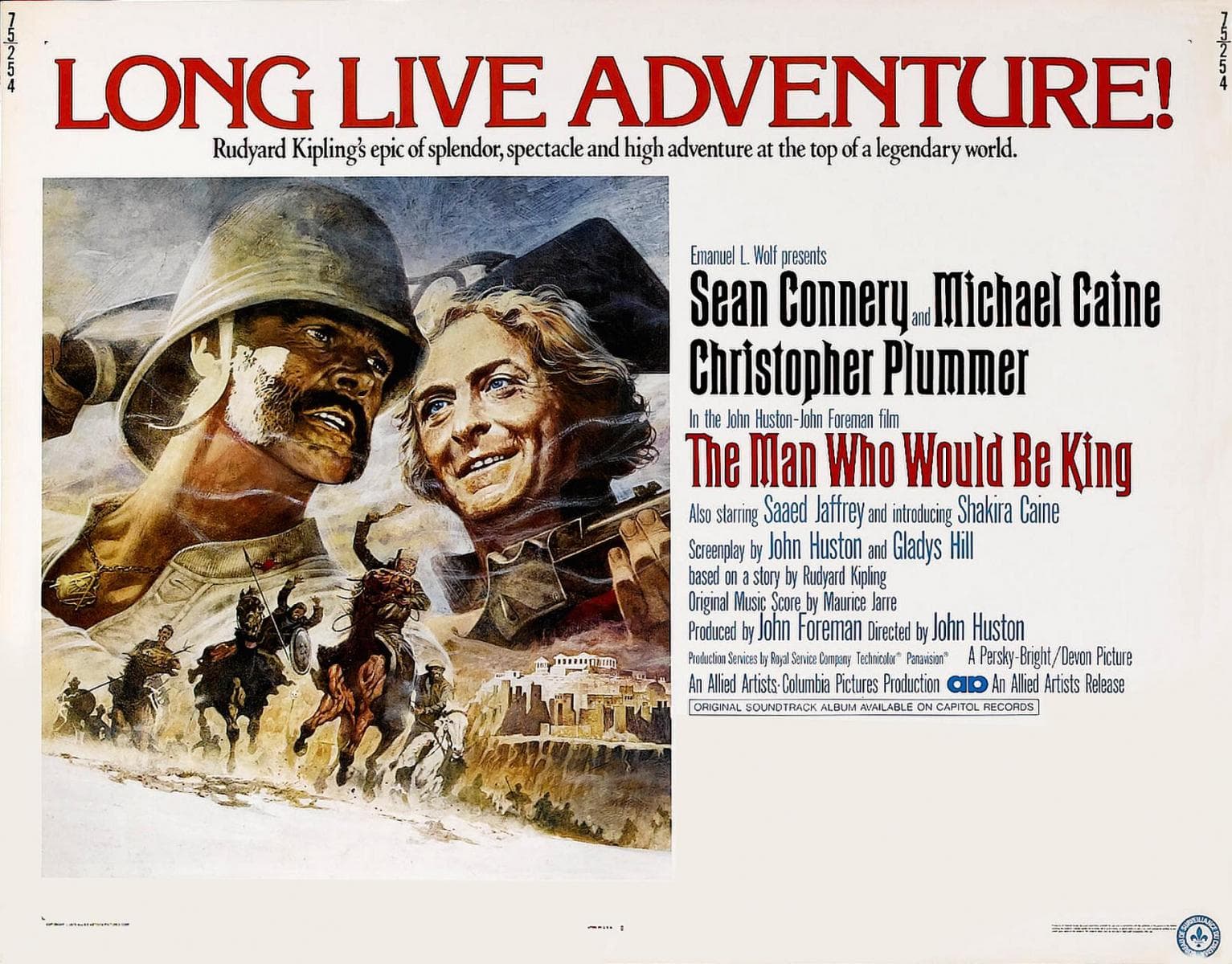
Featured Videos
Official Trailer
Comments
Loading comments...